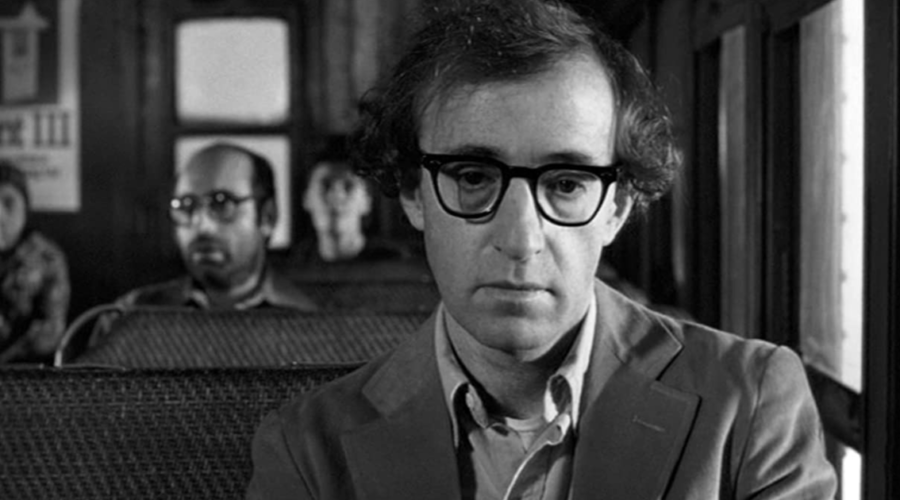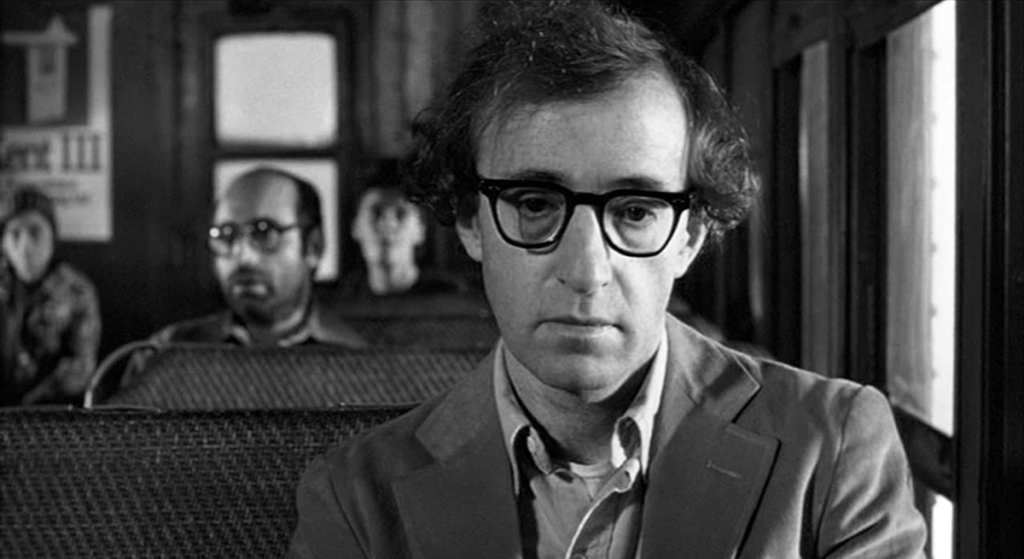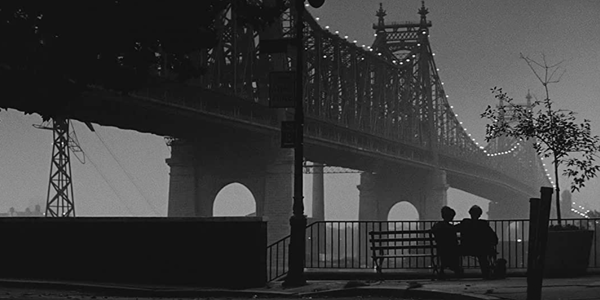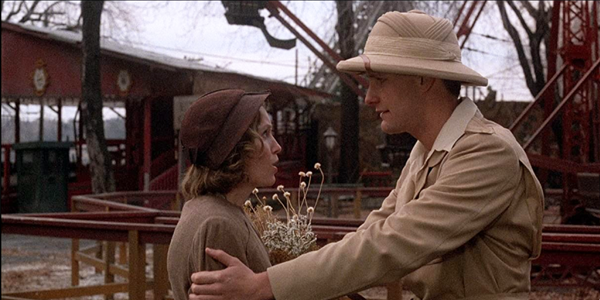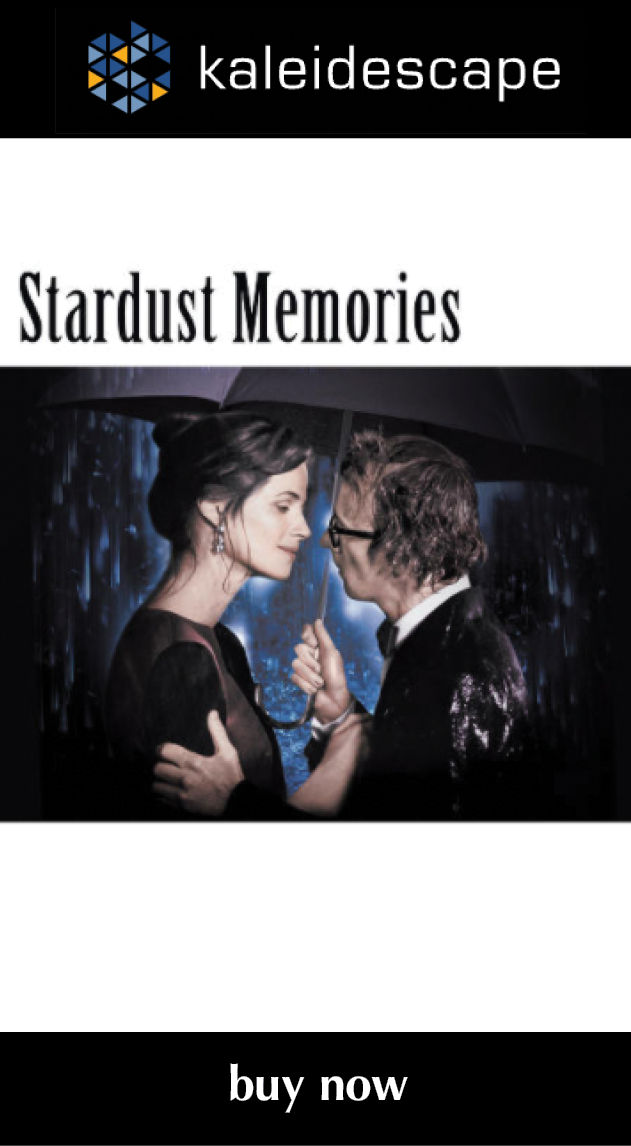Review: Stardust Memories
recent reviews
Sign up for our monthly newsletter
to stay up to date on Cineluxe
The film that drove the masses away from Woody Allen’s work offers the deepest, most nuanced, portrayal of his persona
by Michael Gaughn
March 7, 2021
Having considered a handful of Woody Allen’s most significant films, we now approach his most problematic work (that is, the most problematic for anyone who’s not a prisoner of the irredeemable present). Allen had been on a roll with audiences after Annie Hall and Manhattan but ran into a massive wall with Stardust Memories, which effectively alienated the broader following he’d created with those two earlier films and left him with the small but blindly devoted fan base that would allow him to keep making movies for the next four decades. As perverse as it sounds, it seems possible—even likely—he deliberately created Memories to offend, in a maybe too successful effort to cull the herd.
I wondered in an earlier review why Allen soon abandoned his nimble, well-rounded, creatively fertile persona to portray a thin caricature of himself in later films. The answer might lie here. Being too honest about himself and his perceptions created a backlash that might have been both personally traumatizing and a threat to his career. With his Zelig-like need to be accepted, Allen might have decided that, rather than continue to mine that tremendously and uniquely fruitful vein, he should play it safe—or at least safer—from now on.
Some have called Stardust Memories his best film. It’s undeniably a great film—it takes tremendous talent to go this picaresque and be this unvarnished and ambitious and still pull it off—but it just doesn’t hang together as well as the equally audacious Manhattan. And I think the fault might lie in the relationships he chose to portray and his too facile casting of his partners.
Allen tends to go for the Flavor of the Month with his actors, and while Charlotte Rampling might have photographed well, she just doesn’t have the chops to be believable as his deeply disturbed love interest. Marie-Christine Barrault fares slightly better as his more grounded alternative but, again, there’s just not enough depth there. Jessica Harper almost makes her part work, but she’s not a significant enough screen presence to care about. While Allen was likely just staying true to his actual situation, and famous directors undoubtedly do tend to flit from one stimulating but superficial relationship to another, the film needed a deeper emotional resonance there to balance its incisive but ultimately wearying examination of celebrity.
I don’t want to give the impression I don’t like this film—I do. I just wanted to pinpoint where it sags. Stardust Memories shows a fierce courage—and Allen paid a huge price for going there. Many felt he was too brutal on his fans, but that misses the point. He’s mainly exploring why we manifest the worlds we do and his intense dissatisfaction with his current state, which he was largely responsible for. The suffocating fans were just an inevitable extension of that.
It’s got the loosest structure of any his non-gag-driven films, with a “meet the director” weekend at a seaside resort supplying the armature for him to hang his diverse impressions on, and he makes it work well. The problem (to the degree it is a problem) is that people assumed it would be fun to be inside Allen’s head for 90 minutes and were thrown to find the experience jarring, even disturbing. It’s as if he took another stab at the deeply subjective, free-associational original premise for Annie Hall (called “Anhedonia”) and this time succeeded in landing all the blows.
And let’s not forget that Stardust Memories is a comedy, and a funny one—his conversation with a bunch of street-wise aliens (“I have an IQ of 1,600 and I still don’t know what you expected from that relationship with Dorrie”) might be the best bit in any of his films—but there’s not a single comic moment than isn’t deliberately troubled by darker currents—which is what makes the film so brilliant but also threw audiences so hard.
Allen does somewhat balance, or at least temper, his unflinching take on his reality with a deeply bittersweet romanticism, which he sees as a necessary buffer while realizing that retreats into fantasy always come at a price (something he would explore with far more nuance in The Purple Rose of Cairo). That romanticism permeates the film, in how the Allen character treats his relationships, in the Django Reinhardt-inflected jazz soundtrack, and especially in Gordon Willis’s cinematography, which takes the more epic style of Manhattan and gives it a deeper bite.
My comments about how Willis’s images fare in this Blu-ray-quality HD download will sound eerily similar to my comments about his work in Manhattan. Everything looks good, but not first-rate, and Memories really does need the subtlety of all the captured steps of grayscale to help soften the impact of the deliberately harsh material. The movie is perfectly watchable in this form—although intense pools of bright light are so harsh they’re distracting—but it would be not just better but a different experience in 4K HDR.
Stardust Memories remains a challenging film—partly because none of Allen’s other movies have pushed the audience as hard to consider the difficult, but valid, positions he’s putting forth. It’s hard to appreciate the risks he took here—especially when you consider that even he didn’t accurately anticipate the backlash he’d trigger. If you see this film and know exactly how you feel about it at the end, you weren’t really watching.
In hindsight, this was the pivotal moment in Allen’s career. One of the running gags in Memories is his fans’ preference for his “early, funny” films, a sentiment he acknowledges and, through this film, says he’s OK with because he knows that’s all behind him now. Time has since affirmed his judgment, exposing the many weaknesses of those early movies while revealing the many strengths of his mid-period work.
But this was also his first film in years without Diane Keaton as his leading lady, and although her presence can be felt in the Rampling character, his inability to make the romantic relationships interesting enough does weigh the film down. This is pure speculation, but it seems likely Allen would have continued making far more adventurous movies if the public hadn’t turned on him so viciously after Memories. Looking to regroup, he assumed he needed a leading lady to make his work more palatable—which is when a very eager Mia Farrow appeared.
Michael Gaughn—The Absolute Sound, The Perfect Vision, Wideband, Stereo Review, Sound & Vision, The Rayva Roundtable, marketing, product design, some theater designs, a couple TV shows, some commercials, and now this.
© 2023 Cineluxe LLC
